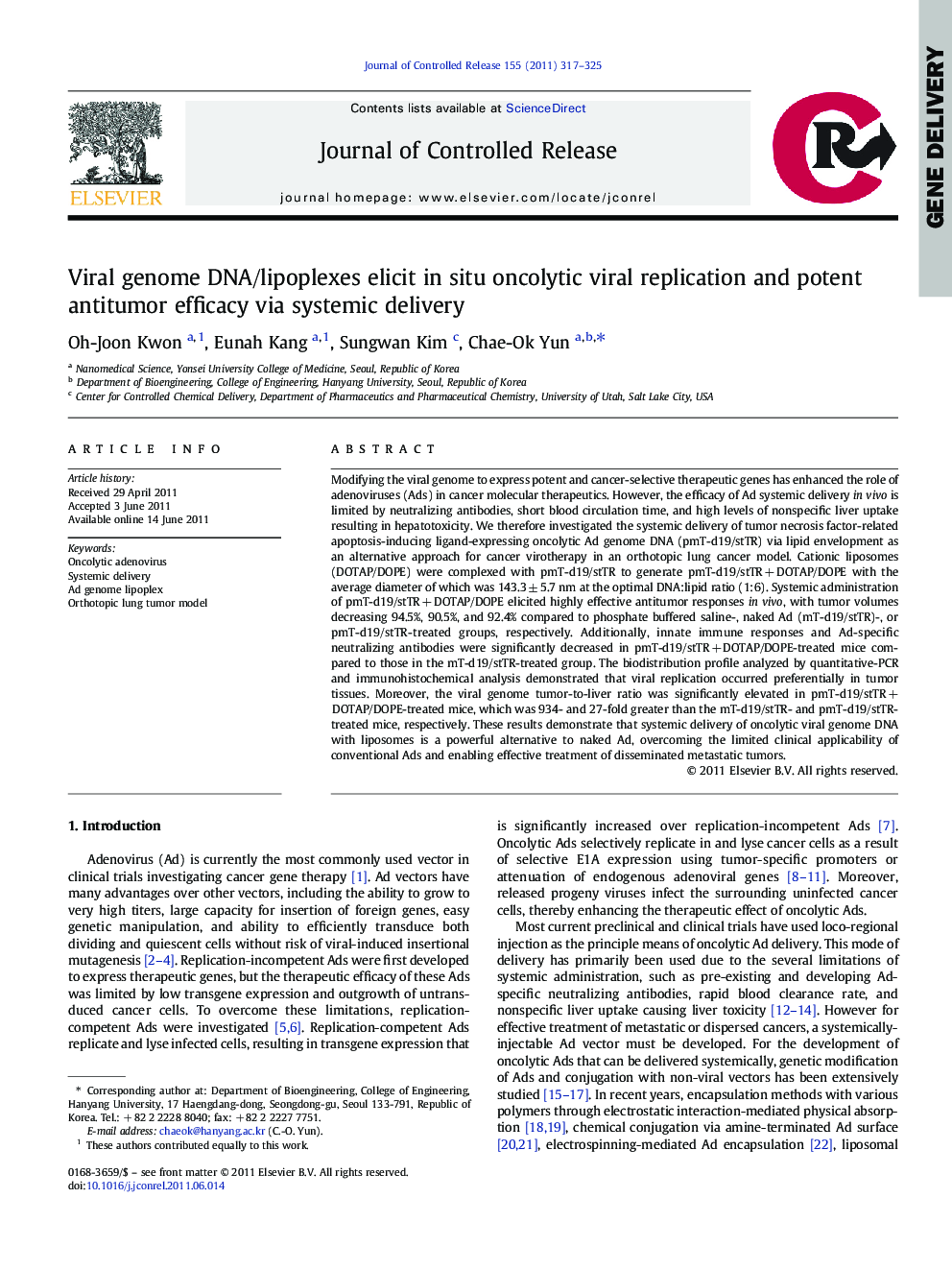| Article ID | Journal | Published Year | Pages | File Type |
|---|---|---|---|---|
| 1424743 | Journal of Controlled Release | 2011 | 9 Pages |
Modifying the viral genome to express potent and cancer-selective therapeutic genes has enhanced the role of adenoviruses (Ads) in cancer molecular therapeutics. However, the efficacy of Ad systemic delivery in vivo is limited by neutralizing antibodies, short blood circulation time, and high levels of nonspecific liver uptake resulting in hepatotoxicity. We therefore investigated the systemic delivery of tumor necrosis factor-related apoptosis-inducing ligand-expressing oncolytic Ad genome DNA (pmT-d19/stTR) via lipid envelopment as an alternative approach for cancer virotherapy in an orthotopic lung cancer model. Cationic liposomes (DOTAP/DOPE) were complexed with pmT-d19/stTR to generate pmT-d19/stTR + DOTAP/DOPE with the average diameter of which was 143.3 ± 5.7 nm at the optimal DNA:lipid ratio (1:6). Systemic administration of pmT-d19/stTR + DOTAP/DOPE elicited highly effective antitumor responses in vivo, with tumor volumes decreasing 94.5%, 90.5%, and 92.4% compared to phosphate buffered saline-, naked Ad (mT-d19/stTR)-, or pmT-d19/stTR-treated groups, respectively. Additionally, innate immune responses and Ad-specific neutralizing antibodies were significantly decreased in pmT-d19/stTR + DOTAP/DOPE-treated mice compared to those in the mT-d19/stTR-treated group. The biodistribution profile analyzed by quantitative-PCR and immunohistochemical analysis demonstrated that viral replication occurred preferentially in tumor tissues. Moreover, the viral genome tumor-to-liver ratio was significantly elevated in pmT-d19/stTR + DOTAP/DOPE-treated mice, which was 934- and 27-fold greater than the mT-d19/stTR- and pmT-d19/stTR-treated mice, respectively. These results demonstrate that systemic delivery of oncolytic viral genome DNA with liposomes is a powerful alternative to naked Ad, overcoming the limited clinical applicability of conventional Ads and enabling effective treatment of disseminated metastatic tumors.
Graphical abstractFigure optionsDownload full-size imageDownload as PowerPoint slideResearch Highlights► Viral genome lipoplexes elicits active oncolytic viral replication after systemic delivery. ► Viral replication occurred preferentially in tumor tissues. ► Systemic administration elicited highly effective antitumor response. ► Immune responses against Ad were significantly decreased compared with naked Ad.
